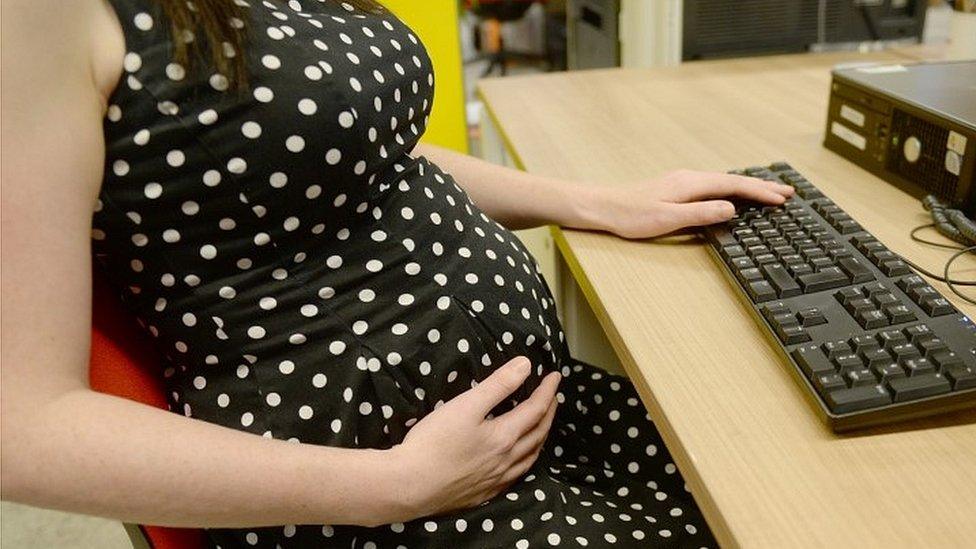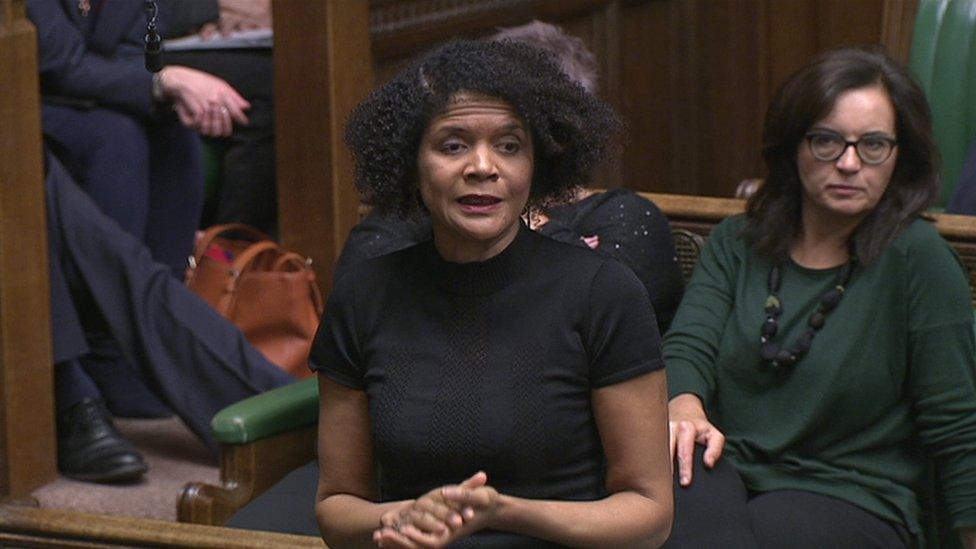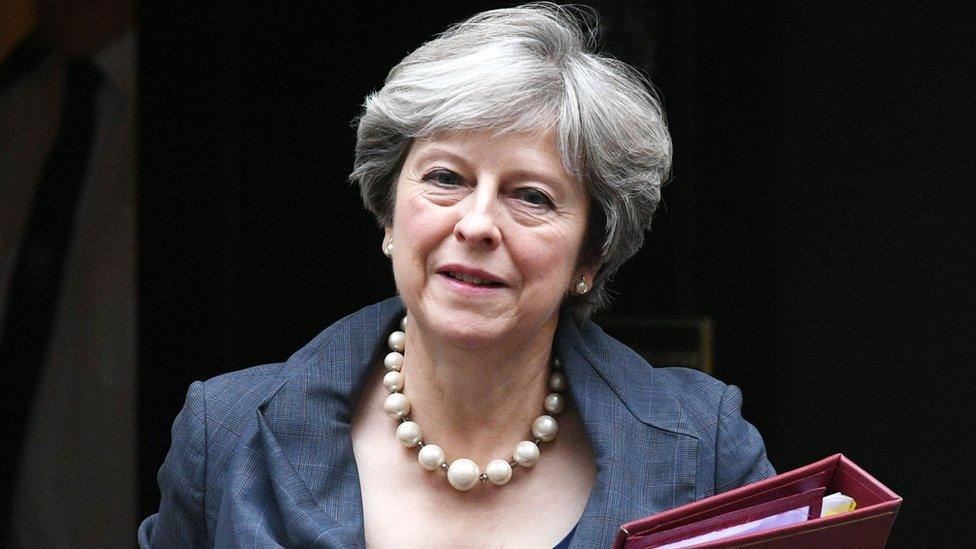Women councillors speak out about sexual harassment
- Published

In July a report by the Fawcett Society suggested a third of female councillors had experienced sexist comments in the council chamber while one in 10 had experienced sexual harassment from other councillors.
Yet it has taken a Westminster scandal for the political parties to sit up and take notice.
Last month a group of Labour Party members founded LabourToo, a website which enables women to share their experiences of harassment within the party anonymously.
Since then a number of high-profile allegations have hit the headlines.
But a representative for LabourToo said the group were concerned the issue would not be addressed at all levels of politics, including local councils.
"The focus at the moment is gravitating towards Westminster, but this is an issue which pervades all political parties, and at all levels, from members, to elected volunteers, councillors and MPs," she told the BBC.
"We are worried that the focus on Westminster will result in changes there but will not go far enough. We know these things are going on throughout the party, and want to ensure this issue is addressed at all levels."
Labour MP Cat Smith recalled her experience as a party activist
One councillor, who has experienced sexual harassment herself, told the BBC the problem was rife in local government.
"This must be happening in every town hall in the country. The focus is on Westminster but everywhere you get a gender imbalance this stuff will be happening," she said.
Her experience, she said, was a "classic case of wandering hands" from a fellow candidate, who then became a councillor.
"He was very friendly, very encouraging, but also had wandering hands. It was uncomfortable and unwanted touching."
She reported the incident to the secretary of the constituency party but decided not to make a formal complaint.
"She (the constituency secretary) was very concerned and we had a very long conversation and she took extensive notes. But what was so frustrating was that you still have to make a formal, written complaint after talking to someone. It's quite a discouragement for people to report," she said.
It was only two years later, when it emerged others had experienced similar harassment from the same male councillor, that any action was taken, she said.
"In the end he was asked to stand down but there wasn't a proper process followed. There should have been a proper investigation.
"He remained a member of the party and he turns up to branch meetings and campaigning activities. I'm concerned he's still doing exactly the same things as before," she said.
She said the male-dominated and often sexist environment of councils made matters worse.
"Politics is a pretty dinosaur game. It's been very white and very male for a very long time," she said.
The prime minister said all staff at Westminster should be "treated with respect".
Labour MP Dame Margaret Hodge, a former leader of Islington Council who co-chaired the Fawcett Society report, external, also called for tougher action on sexism and sexual harassment.
"We should be suspending people. If councillors are sexist they should be out. We should have a zero tolerance approach," she said.
Part of the problem, Dame Margaret said, was the lack of a formal structure for complaints.
The 2011 Localism Act abolished the mandatory code of conduct that existed for councillors and the formal standards committees that could deal with complaints.
Councils are now required to introduce their own codes and sanctions but there is no formal model or requirement to have a standards committee.
"There isn't adequate support for women who suffer sexism and harassment. There used to be a structure through the standards' committees. Now there is no formal structure for challenging sexism," said Dame Margaret.
'Going backwards'
Westminster party leaders have now agreed to introduce a new grievance procedure for staff to deal with misconduct allegations but the steps for local government are less clear.
Labour MP for Birmingham Yardley Jess Phillips called the proposals "utterly disappointing".
"So if you don't work in Parliament and an MP assaults you, or MPs staff does. How will this help?" she tweeted.
The Conservatives have also published a new code of conduct for all their elected representatives with an independent figure on the body looking into grievances and Labour has appointed an independent expert to review the party's complaints procedure.
The SNP have also begun an internal investigation into complaints about inappropriate sexual behaviour.
A group of Lib Dems have set up a website, LibDemsToo, for activists to document alleged incidents.
LabourToo said they were still concerned complaints would be assessed by party staff and the process would not be independent.
One councillor who had reported sexual harassment in the past said: "You can be reporting to people that are running the selection process for local elections. People are fearful that if they kick up a fuss they won't be viewed favourably.
"I think we all have in the back of our mind that complaining doesn't come without a cost."
Dame Margaret said the failure to tackle sexism was "undoubtedly" putting women off politics.
"Things are going backwards. Political parties have to sort themselves out. We need to put in place structures which enable victims to put forward complaints and know they will be taken seriously."
- Published13 July 2017

- Published30 October 2017

- Published29 October 2017
